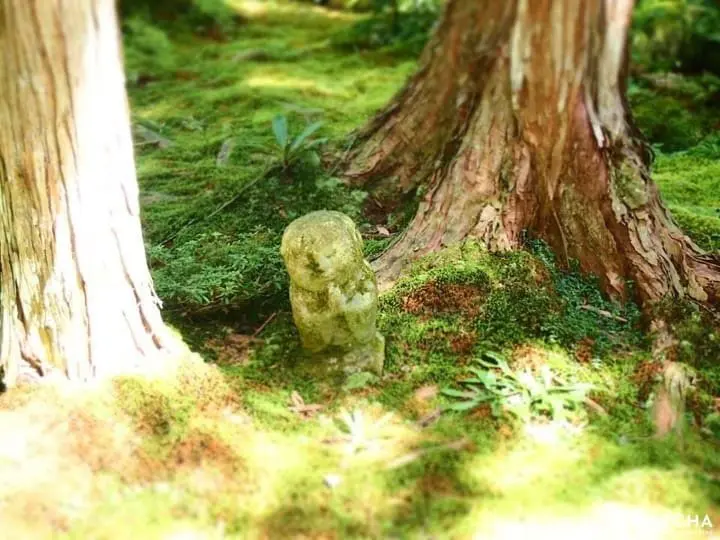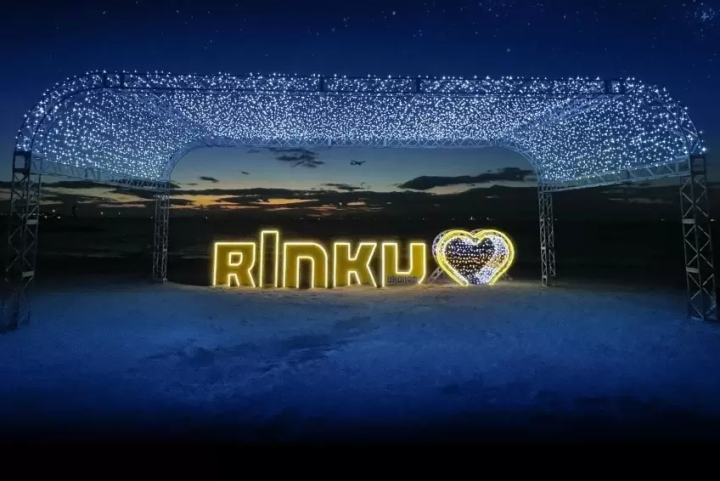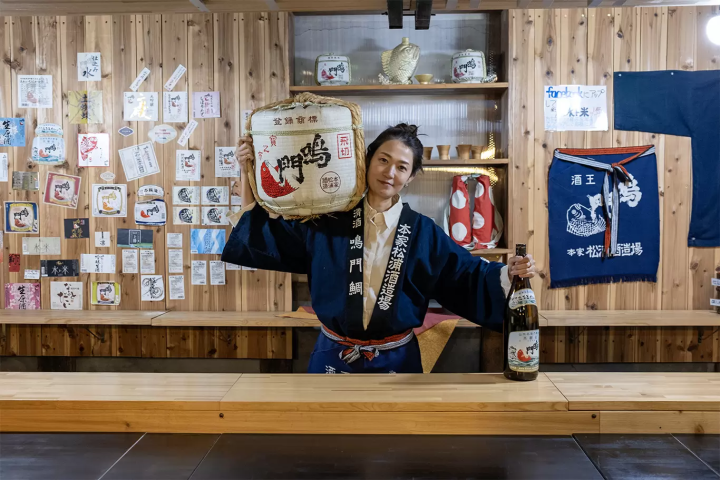Jizo (Guardian of Children And Travelers) - Japanese Encyclopedia

It's a common sight to see small stone Jizo statues throughout Japan. Resembling a Buddhist monk, these peaceful figures are believed to be the guardians of children and travelers. Affectionately called “O-Jizo-san,” this deity holds a special place in the hearts of Japanese people.

All across Japan, there are small stone statues called Jizo that are found along travel routes and temples. Most Japanese affectionately refer to this Buddhist deity as "O-Jizo-san."
According to belief, Jizo statues are depicted as Buddhist monks who guide and protect all living beings. Beloved since ancient times, these serene figures are said to offer compassion and assistance to those who truly need it.
The popularity of these baby-faced bodhisattvas can be credited to an old folktale called "Kasa Jizo" (*1). Once the story became widespread, it was soon customary for people seeking help to visit a Jizo statue with their prayers or wishes.
Now, let's take a look at some representations of Jizo found throughout Japan!
*1 Kasa Jizo: a folktale about a poor, but kind-hearted elderly couple. While clearing a snow-covered road, the old man placed a conical straw cap on a Jizo statue to protect it from the snowfall. In turn, the Jizo aided the couple when they needed help.
Blessings for Children: Visit Sanzen-in Temple and Pray to the Child-Like Warabe Jizo

Picture from "Sanzen'in Temple: Stroll Through A Japanese Garden In Ōhara, Kyoto"
Kyoto always ranks at the top destinations visited by international travelers. There, you'll find Sanzen-in Temple, which is known for its beautiful moss-covered garden. Child-like statues called "warabe Jizo" are also scattered throughout the lush greenery.
The figures feature different poses from standing, sitting, laying down, and their heads tilted in thought. Each statue is charming in its own way and gives viewers a sense of peace and comfort. It's also fun to search for these hidden Jizo statues while strolling through the garden.
In fact, "warabe" is an old Japanese word for "child." Therefore, the warabe Jizo statues are said to grant wishes for safe childbirth, pregnancy, and children's protection.
If you are either praying for safe delivery or protecting your kids, why not visit Sanzen-in Temple on your travels to Kyoto?
Although the visiting hours vary on the season, the temple is generally open between 9:00 and 16:00 year-round. The admission fee is 700 yen for adults, 400 yen for junior and high school students, and 150 yen for elementary students. Since it is difficult to reach by public transportation, it's recommended to visit on a tour.
Prayers for Health And Longevity: Visit The Togenuki Jizo in Tokyo's Sugamo District

Koganji Temple, Photo by Guilhem Vellut via Flickr
The togenuki Jizo, or thorn-picking guardians, can be found in the Sugamo district of Tokyo. In fact, this neighborhood has been nicknamed the "Granny's Harajuku."
Unfortunately, the Jizo statue at Koganji Temple is not open to public viewing. However, there are portraits of these sweet-faced deities on washi paper known as "omikage." Measuring 4 centimeters tall and 1.5 centimeters wide, these can be purchased as souvenirs from the shrine.
According to belief, temple-goers who carry an omikage and pray to the O-Jizo-san for healing must first tear the drawing into small pieces. The paper talisman must then be swallowed with plenty of water to be cured of any illness or injury. Five omikage cost 100 yen and can be purchased while the shrine is open from 6:00 to 17:00.
Koganji Temple is a five-minute walk away from the Sugamo Station along the JR Yamanote Line. For those traveling by car, please be advised that there is no parking lot at the temple. The admission is also free.
If you or a family member has health concerns, visit Koganji Temple to see if the healing powers of the togenuki Jizo can help!
Need a Wish Granted? Visit the Kofuku Jizo at Suzumushi Temple

Kegonji Temple in Kyoto is also known as Suzumushi-dera (Bell Cricket Temple)
Famous for its year-round chirping crickets, Kegonji Temple in the Myotokusan area of Kyoto is nicknamed Suzumushi-dera ("Bell Cricket Temple").
After climbing up the stone steps, you'll find the "Kofuku Jizo" (the bodhisattva of happiness) standing just beyond the gate. It's the only Jizo in Japan seen wearing waraji (*3) sandals. It's believed that this footwear assists the guardian to travel to wish-makers' homes.
To make a prayer, you must state your full name and your address to the Jizo. It's also important to have an omamori (protective charm) from the temple on hand to stay protected from any misfortunes. The good luck charm also aids the Jizo in finding your whereabouts.
When your wish is granted, you have a year to either revisit the temple in person or express your gratitude to the guardian in a letter.
The temple is open from 9:00 - 17:00 (last entry 16:30), and admission costs 500 yen for adults. The omamori is available for 300 yen. It takes about an hour to reach Suzumushi Temple and is easily accessible via the Kyoto Bus from Kyoto Station.
*3 Waraji: woven straw sandals worn for centuries in Japan.
Praying to the Protectors of Travelers and Children
O-Jizo-san is a diety dear to the Japanese. It's a long-standing belief that these guardians have been looking after them since ancient times.
Keep your eyes peeled for these peaceful stone statues while sightseeing throughout Japan. You just might have your prayers answered!
This is the official account of MATCHA's editorial department. Our articles feature useful travel information for visitors to Japan, from how-to guides to recommended places to visit.



































![[Niigata] Skiing and snowboarding are just not enough! Fun snow spots for parents and children](https://resources.matcha-jp.com/resize/720x2000/2026/01/29-256901.webp)


![[Gunma, Nakanojo] Experience Japanese history in a wooden school building from the Meiji era](https://resources.matcha-jp.com/resize/720x2000/2025/12/25-254022.webp)
